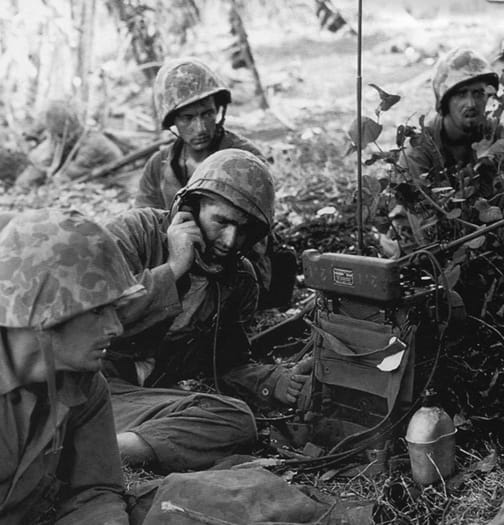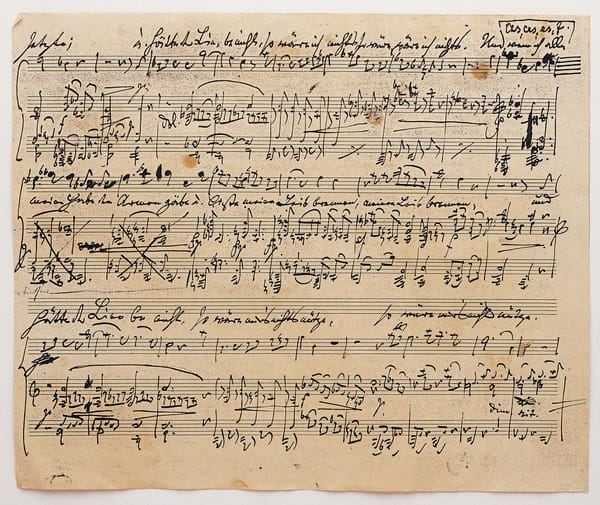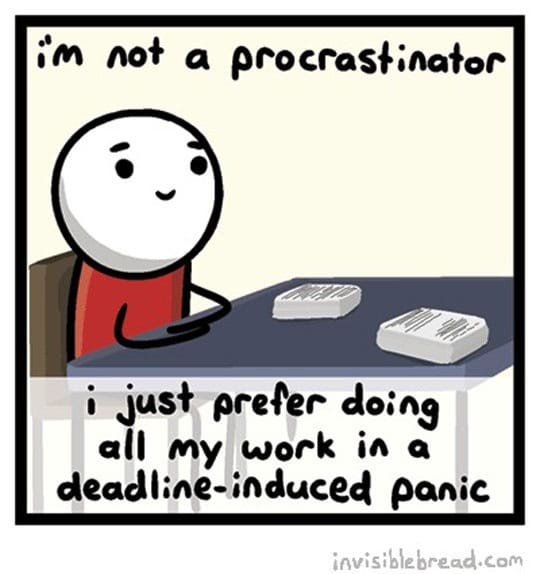Some of you may recall this scene from Leslie Nielsen’s ‘Airplane’ in which three airline pilots dance around the words/names clearance+clarence, vector+victor, and roger+roger. it’s Leslie Nielsen… its funny…
Ever thought about that one word pair there that is, in fact, the same word? ‘Roger’ is a name and ‘roger’ is also what people tend to use over radios when they want to confirm they have heard the other person and, often, to convey their agreement as well. (e.g. “Take the next left” > “Roger!” or “I think we should stop at the next local choke’n’puke…” > “Roger that!”).
So, why would we say ‘Roger’? Who is this mythical Roger and why is he so darn affirmative? Actually, it’s not just Roger who comes into play here… we also need to consider Robert and Romeo, his doppelgangers.
Back in World War II, the American military and the British RAF were conducting a great deal of joint operations which required constant communication between ground forces, the navy, and the air force. Much of this communication, particularly the critical, immediate, life-and-death messages, were delivered via radio. You can imagine that laying down enfilading small arms fire to suppress a barrage of mortars is not the most conducive environment for clear messaging, especially over crappy radio technology. It’s easy enough during a game of ‘telephone’ to mishear and deliver incorrect information. If you are trying to rapidly relay coordinates for air support based on grid-square references, how can you be sure your listener hears ‘M’ and not ‘N’ or hears ‘V’ and not ‘B’?
The answer is: you use a spelling alphabet! Yay! Solved!
Spelling alphabets, often incorrectly called phonetic alphabets (they aren’t phonetic because they specifically avoid the problems of phonetics…), use words in place of letters. We are all familiar with this concept from many different movies/tv shows/books (think the recent movie WilcoTangoFoxtrot or Easy Company along with Dog and Able Companies from Band of Brothers… or that little baker mouse in the Richard Scarry books called Able Baker Charlie). The most widely used spelling alphabet today is the NATO alphabet (a.k.a. International Radiotelephony Spelling Alphabet). It looks like this:
 |
| NATO Spelling Alphabet |
Each letter and each number is given a specific word and pronunciation to make it easily distinguished from all the others. Note the odd pronunciations on ‘Uniform’, ‘Oscar’, ‘Victor’, and 3, 4, 5, and 9.
So, back to Roger — where’s ‘Roger’ on this list? He’s not — we have his doppelganger ‘Romeo’.
If we jump way back in time (not that far back…), we can examine the World War I spelling alphabets. The British Navy developed the first full spelling alphabet which, by 1921, was adopted by all branches of the British military. It looked like this:
Apple, Beer, Charlie, Don, Edward, Freddie, George, Harry, Ink, Johnnie, King, London, Monkey, Nits, Orange, Pip, Queen, Robert, Sugar, Toc, Uncle, Vic, William, X-ray, Yorker, Zebra
This list lasted until 1942, as the official spelling alphabet of the British military. You’ll notice that we’ve found the other doppelganger ‘Robert’. But we still haven’t found Roger.
Back to World War II and 1942, shortly after the Americans had joined the war (Dec 7, 1941), when the Brits and the Yanks needed to get their ducks in a row to defeat those mangy Krauts, they developed a reworked version of the Brits spelling alphabet. This new one, which I’ll call the British-American spelling alphabet, was in use from 1942-1956 and looked like this:
Able, Baker, Charlie, Dog, Easy, Fox, George, How, Item, Jib, King, Love, Mike, Nan, Oboe, Peter, Queen, Roger, Sugar, Tare, Uncle, Victor, William, X-ray, Yoke, Zebra
As an aside, there is some speculation that they specifically chose words which would be difficult to pronounce for native-speaking Germans, as a sort of telltale sign of espionage — these reports are uncorroborated.
What I can corroborate is that we’ve found Roger! Yay!
However, we still haven’t figure out why anyone would say ‘Roger’ as an affirmative/message received response over a radio nor why we don’t say ‘Romeo’ or ‘Robert’.
Right around this time of war, the general populations of the West were also developing a love for two-way radio. Plus, all the kids at the time thought it was pretty cool to be like those brave boys across the pond. So, the kids started using spelling alphabets with their short-waves and, thus, effectively separated the general use of spelling alphabets from their military origin.
Since then, police forces, airlines, trucking companies, and parcel delivery organizations have developed their own unique spelling alphabets but, still, this particular version of the British-American spelling alphabet from 1942 has remained the default for basic radio communication. So, in the end, it was really just coincidence that married Roger to two-way radio.
And what does ‘Roger’ mean? It means ‘received’ as in ‘message received’. This comes from the time of telegraphy (think Morse code) in which it was common practice to respond to a message with a single ‘R’ to assure the sender that the message was indeed received. So, translate a single, typed ‘R’ into speech and you get ‘Roger’. And that is also part of procedural code, which looks like this:
Affirmative — Yes
Negative — No
Reading you Five / Loud and clear — I understand what you say 5×5.
Over — I have finished talking and I am listening for your reply. Short for “Over to you.”
Out — I have finished talking to you and do not expect a reply.
Clear — I have finished talking to you and will be shutting my radio off.
Roger — Information received/understood.
Copy — Mostly used to acknowledge received information. [May also mean Repeat back to me the information I just gave you. ed.]
Wilco — Will comply (after receiving new directions).
Go ahead or Send your traffic — Send your transmission.
Say again — Please repeat your last message (Repeat is not used as it is a specific command when calling for artillery fire)
Break — Signals a pause during a long transmission to open the channel for other transmissions, especially for allowing any potential emergency traffic to get through.
Break-Break — Signals to all listeners on the frequency, the message to follow is priority.
So far on spelling alphabets





